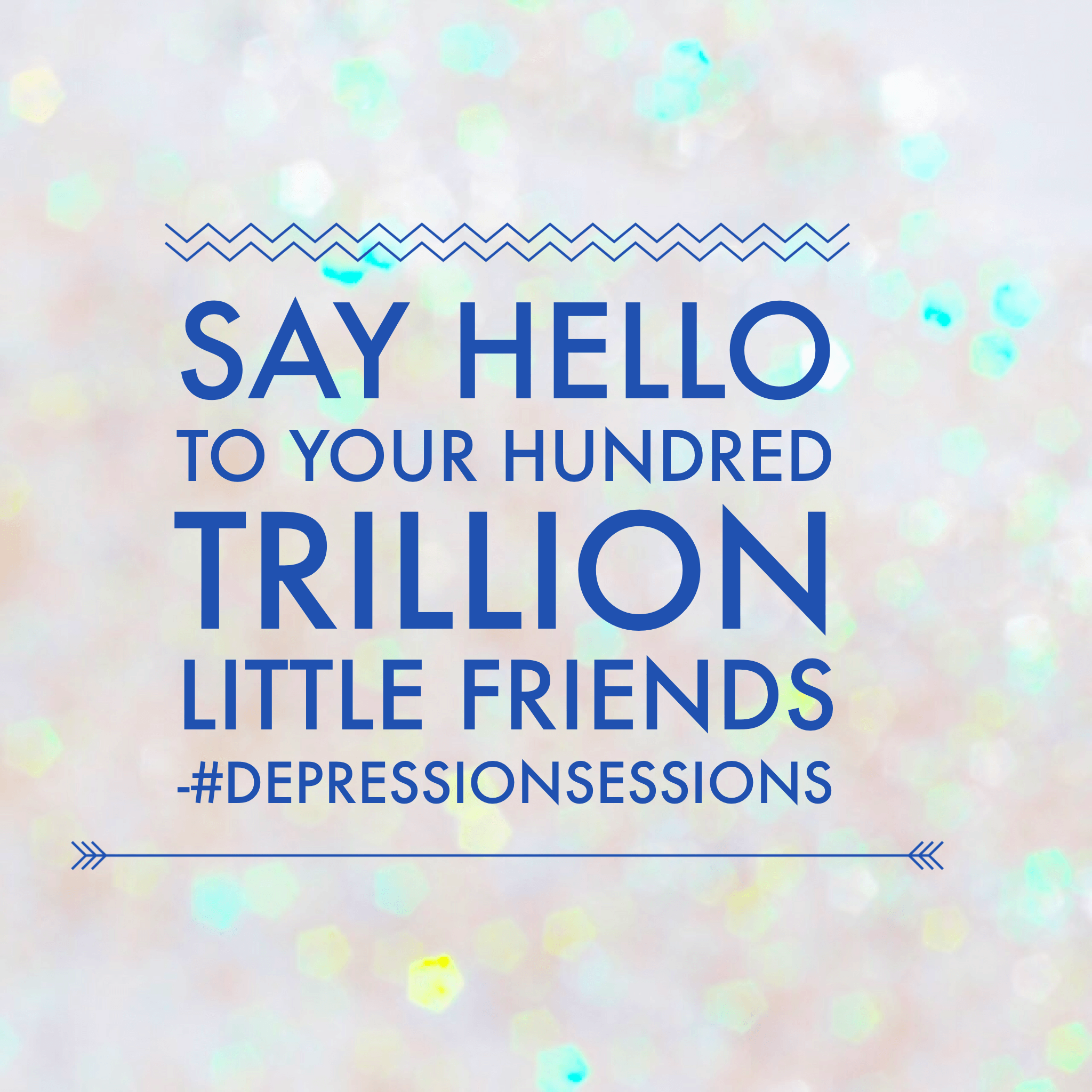
Digestive Health & Depression: bacteria, serotonin, second brains….
“Do the best you can until you know better. Then, when you know better, do better”
– Maya Angelou
The use of antidepressant drugs has long been the first-line treatment of depression, with thoroughly mixed results. For some people these drugs work well in managing symptoms, and for others they have disastrous side effects. One thing is for sure, and that is the fact that we do not have a very good handle on getting to the multiple roots of depression and managing them effectively so that people can lead their lives without the heavy burden depression can bring.
Enter the study of the human microbiome. This rapidly growing area of research is uncovering a dizzying array of actions that the microbiome provides for its host – you. Within your large intestine, there is a 100-trillion cell strong colony of bacteria, and it turns out they have an impact on your mental and emotional well-being.
Earlier this spring, I sat down with my friend Sean Croxton of Underground Wellness to discuss this very thing for his upcoming online summit, the Depression Sessions.
There are several actions through which the microbiome exerts its influence on the brain.
The microbiome is in direct communication with your enteric nervous system (ENS, your ?second brain?), your autonomic nervous system (the ?fight or flight? and ?rest and digest? branches of your nervous system) and the central nervous system (your brain and spinal cord).
These interwoven communication systems are bimodal – they go both ways. That feeling of butterflies when you are excited or in love or that sinking feeling when you get bad news are both examples of the connection between the gut and the mind. Likewise, those with IBS, IBD, functional bowel disorders or digestive symptoms will tell you that when their physical symptoms are flaring, their mental outlook can crash.
The microbiome impacts serotonin creation and signaling. You will learn in the Depression Sessions that serotonin is not the be-all, end-all hormone when it comes to depression, although conventionally it is treated as such. It does play a role, however, and digestive health has a hand in serotonin cycling. The vast majority of serotonin creation occurs in the digestive tract. Also, the gut houses the largest number of serotonin receptors – way more than the brain. Let that sink in. Your gut hears serotonin?s message louder than your brain does.
The cells that make serotonin in the gut are called EC (entrochromaffin) cells.They are largely regulated through communication with specific strains of bacteria and their metabolites that are part of your microbiome. These strains are known as spore-forming bacteria and there are about 20 strains of spore-forming bacteria that live in the average human gut. These are of the Firmicutes and Actinobacter lines.
Serotonin created in the gut impacts the brain via the vagus nerve and the receptors found within it, according to the work of Dr. David Grundy. This is why depression and anxiety often go hand in hand with gastrointestinal unrest, functional bowel disorders and even fibromyalgia.
Keeping a diverse microbiome is key to mental health.
Researches have illustrated in mice and are beginning to note in human studies as well that the more diverse the gut flora, the healthier the body and mind.
People who are depressed have a less diverse gut flora. Also, they tend to have a gut flora that has self-selected to prefer to metabolize carbohydrates and fat. Isn?t that interesting? Many people with depression report increased cravings for carbohydrates and ?comfort foods?. This in turn selects flora that metabolize them well, and send signals to you that they want more. Their metabolites can be inflammatory, which creates mild irritation in the gut lining which eventually translates into inflammatory molecules altering or effecting hormonal and neurotransmitter signaling.
The good news is that the microbiome can be changed, in some cases quite quickly. Studies have shown that diet-induced changes in the microbiome can happen in as little as 72 hours. Increasing fiber through consumption of vegetables and fruits puts your gut flora on track to diversity.
And diversity, like any ecological or social system, is the shield against ruin.
From my perspective, working for almost a with those dealing with digestive problems, I ask: ?Why stop at the microbiome? Why not support ALL facets of gut health for optimal mental health??
After all, it is your gastrointestinal system that houses the microbiome, the very foods you eat are the very foods your gut flora eats, your ability to digest those foods impacts how your gut flora will digest them, your production of enzymes and stomach acid will alter the pH of your digestive system which will in turn impact your microbial diversity and as you?ve learned, your second brain has a mega impact on your gut flora too.
So, let?s get ahead of the curve. Let?s fix your digestion to make sure you are doing ALL you can on the digestive front to help support the mental one.
To learn more about the role that the microbiome plays in brain health, serotonin metabolism and how you can impact it for the better, be sure to listen to my talk with Sean.


